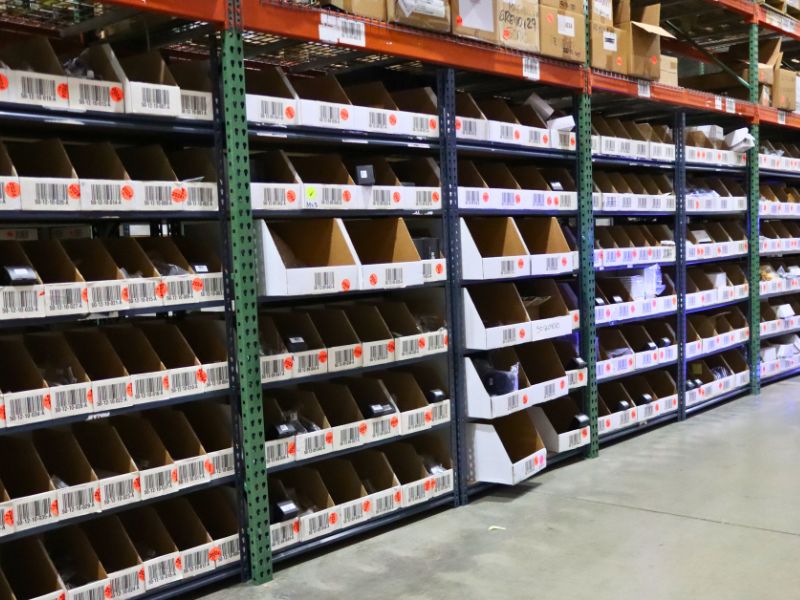Inventory is the backbone of your eCommerce operation. Without control, visibility, and accuracy, your business will run into delays, stockouts, and dissatisfied customers. The right inventory management strategy allows you to move faster, fulfill with confidence, and scale without hesitation. Whether you’re dealing with DTC, B2B, retail, or all three, these strategies help eliminate waste and deliver a smoother customer experience from the warehouse out.
Smart inventory practices are not just about counting stock. They are about aligning systems, processes, and data to keep your operation lean and responsive. Automation, real-time visibility, and strategic forecasting make the difference between reacting to problems and preventing them. These six strategies are built to strengthen your foundation, improve efficiency, and position your brand for growth.
Centralize Inventory Across Every Channel
Fragmented systems create blind spots. When your inventory lives in separate spreadsheets or unconnected software, it’s nearly impossible to get a reliable picture of stock levels. Centralizing inventory into a single platform ensures all channels pull from the same source of truth.
By managing inventory through one connected system, you eliminate duplicate data entry, reduce manual errors, and gain clear insights into what is available, committed, or incoming. This synchronization ensures you can fulfill orders accurately, even during high-volume events or across multiple locations.
MAI Fulfillment integrates with over 100 platforms and marketplaces, providing a single, streamlined solution for inventory control. Our systems are built to unify your operation so you can scale faster and sell everywhere with confidence.
Improve Accuracy with Real-Time and Mobile Tracking
Knowing your stock levels is one thing. Having real-time access to that data from anywhere in your operation is what truly drives accuracy. Real-time inventory visibility paired with mobile scanning tools eliminates delays in data updates and reduces costly mistakes.
Mobile tools empower warehouse teams to update stock levels immediately during receiving, picking, and cycle counting. This keeps your system accurate without relying on end-of-day data entry or manual reconciliation. It also improves efficiency by reducing mispicks and shrink.
MAI equips its warehouse teams with mobile-first tools that connect directly to our warehouse management system. That means every scan, pick, and adjustment happens in real time which gives you the visibility you need to make better decisions.
Automate Reordering with Smart Forecasting
Manual reordering often leads to overstocking slow movers or running out of top sellers. Automation powered by forecasting tools makes it easier to stay ahead of demand. Historical sales data, seasonality, and channel trends help predict what needs to be replenished and when.
Forecasting tools use real-time performance to trigger alerts or automate purchase orders based on defined thresholds. This prevents dead stock from tying up capital and ensures your best sellers are always available to ship.
At MAI Fulfillment, we use data-driven tools to help clients forecast demand and plan ahead. Our technology works behind the scenes to ensure your inventory turns efficiently while keeping your most important products in stock.
Classify SKUs and Adjust Buffers Strategically
Not all products are created equal. Some SKUs turn fast and drive high profits. Others move slower or are tied to seasonal events. Smart inventory management starts by segmenting your catalog by velocity, value, and priority.
Once SKUs are grouped, you can adjust reorder points and safety stock levels based on demand patterns, supplier lead times, and customer expectations. Fast movers may require tighter restocking thresholds, while slow sellers can be ordered less frequently.
MAI helps clients build custom replenishment strategies by product type and sales behavior. We apply real-world data to keep safety stock flexible and tailored to your business, avoiding waste and missed sales.
Monitor Key Metrics to Improve Performance
Inventory decisions should be guided by data. Tracking the right KPIs lets you identify inefficiencies early and respond quickly. Metrics like inventory turnover, carrying cost, order accuracy, and stockout rate reveal where your operation needs attention.
Weekly reviews of inventory performance help prevent overstock, reduce storage costs, and improve order fulfillment. This keeps your operation lean while still meeting customer expectations.
MAI provides live dashboards and scheduled reporting to keep clients informed. We believe in proactive communication and real data that drive action and not guesswork.
Choose a Fulfillment Partner Built for Inventory Precision
You can only move as fast as your systems allow. The wrong 3PL will leave you chasing stock errors and reacting to problems. A fulfillment partner with deep inventory expertise becomes an extension of your team and a driver of growth.
Look for a 3PL that offers real-time inventory visibility, hands-on support, and scalable systems that grow with you. Whether you are launching new SKUs, entering new channels, or preparing for peak season, your fulfillment partner should be ready.
MAI Fulfillment is built for speed, accuracy, and control. Our tech-driven systems, warehouse-level customer service, and transparent reporting give brands a true operational advantage.
Ready to improve your inventory performance?
Let MAI Fulfillment simplify your systems and keep your stock in sync.
Connect with our team to get started.




